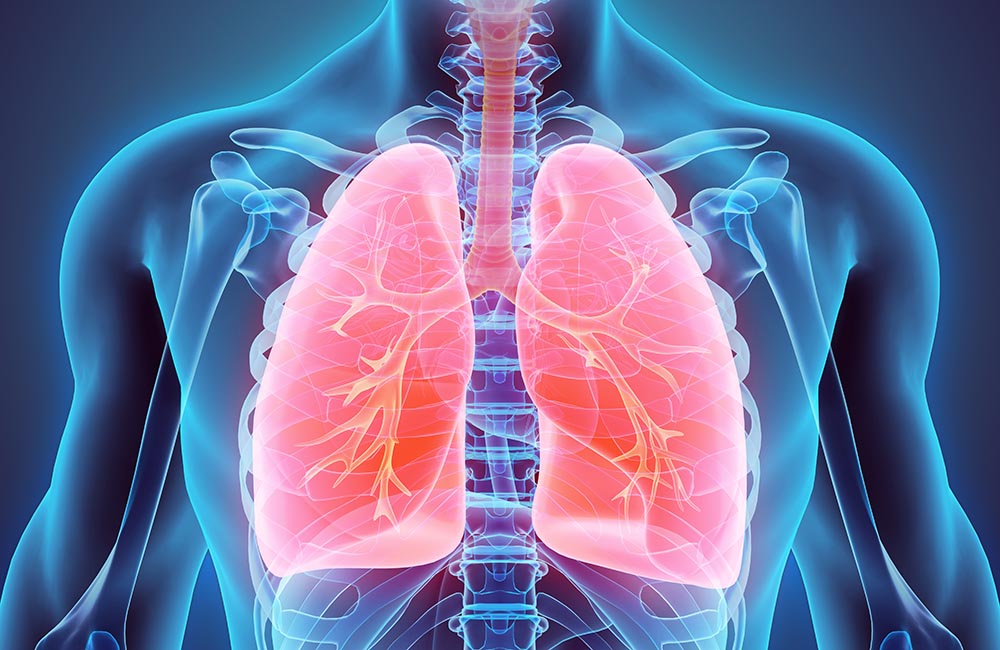Researchers from Hanover and Magdeburg discover cause of rare congenital lung malformations
Gene mutations in the RAS-MAPK signalling pathway disrupt lung development in the womb
Most rare diseases are congenital - including CPAM (congenital pulmonary airway malformations). These are airway malformations of the lungs that can lead to severe breathing problems in some affected newborns and can be associated with an increased risk of lung cancer. Researchers at Hannover Medical School (MHH) and Magdeburg University Medical Centre (UMMD) have now succeeded in identifying the genetic causes of the disease in a study.
Cysts penetrate the lung tissue
Although CPAMs are rare, they are one of the most common congenital lung malformations.There are different types of the disease, which develops during the embryonic phase in the womb.In the most common form, the lung tissue is riddled with large cysts, the growth of which can have negative effects on the newborn's blood circulation and breathing. If this is the case, the affected children must be operated on at an early age.
Tracking down the cause
In their search for the cause of CPAM, the research team pursued the following hypothesis: Variants in cancer-associated genes of the so-called RAS-MAPK signalling pathway, which occur in the lung epithelium during prenatal lung development, are responsible for the lung malformations. These variants disrupt normal lung development and lead to maldevelopment in affected lung sections, resulting in a malformation of the lung.
Hypothesis confirmed
In their study, the scientists examined CPAM tissue samples from a total of 43 children histologically and genetically.All of these children had undergone surgery for CPAM at the Department of Paediatric Surgery at the MHH over the past 20 years.Surgery for lung malformations is one of the clinic's core competences.The result of the genetic analysis: variants in genes of the RAS-MAPK signalling pathway were detected in the tissue samples of almost 60 percent of the young patients - confirming the research team's hypothesis. The KRAS gene in particular was affected by variants. The children with a KRAS variant had a statistically more severe course of the disease than children without it.
Results contribute to better diagnostics
The work was published in the American Journal of Respiratory and Critical Care Medicine."The results are clinically important, they contribute to a better diagnosis of CPAM and may also improve the treatment of the disease," explains Professor Dr Christian Kratz, Director of theDepartment of Paediatric Haematology and Oncology and initiator of the study."The publication was only possible thanks to the fantastic collaboration between the many people involved from different institutes and clinics," he emphasises.Dr Denny Schanze, Head of Laboratory at the Institute of Human Genetics Magdeburg, adds: "The use of modern ultra-deep NGS sequencing methods was essential for the successful elucidation of the genetic cause of the disease."The first author of the study is Jonas Windrich, a tenth-year medical student.The work was carried out as part of his doctorate. "I learnt a lot about scientific work from the project and would definitely like to combine my future work as a doctor with research," says Windrich.
Cooperation between Hanover and Magdeburg
The MHH Department of Paediatric Haematology and Oncology, the Institute of Pathology, the Department of Paediatric Pneumology, Allergology and Neonatology, the Department of Paediatric Surgery and the Paediatric Radiology Department of the Institute of Diagnostic and Interventional Radiology were involved in the study.The Institute of Human Genetics at Magdeburg University Hospital was also involved.
Original work
RAS-MAPK Pathway Mutations in Congenital Pulmonary Airway Malformations, in: American Journal of Respiratory and Critical Care Medicine (2024), DOI: https://doi.org/10.1164/rccm.202311-2163LE
Scientific contacts
Dr Denny Schanze, Head of Laboratory Institute of Human Genetics, Otto von Guericke University Magdeburg, phone: +49-(0)391-67-24735, e-mail:
Prof. Dr. Christian Kratz, Director of the Clinic for Paediatric Haematology and Oncology, Tel.: (0511) 532-6712,

Symbol photo lung - © yodiyim - stock.adobe.com
- Joint press release by the Faculty of Medicine at Otto von Guericke University Magdeburg and Hannover Medical School






